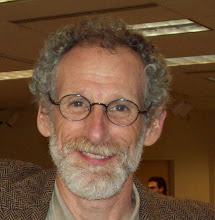This teacher has been teaching second grade at this school site for twelve years in this small agricultural community. The school is a Title I school with kindergarten to fourth grade classes and currently has about 830 students enrolled. There are approximately 94 percent Hispanic students and 4 percent White students. Of those 830 students 70 percent are English learners and 73 percent are on the free/reduced lunch program.
Her philosophy of teaching is that students should be able to teach each other and themselves. She believes students should take ownership of their learning and that teaching and learning are reciprocal. Teaching should involve collaborative learning. Students should have a respectful learning environment where they can learn and become better citizens through collaborative learning. She tries to teach her students character building, independence, and responsibility. She hopes to also develop a culture of metacognition in her classroom by teaching her students to reflect on what they know and what they need to know. She uses a lot of collaborative learning in her classroom.
The students sit in rows facing the white board so that everyone has a partner to pair-share. She changes the lessons by sometimes moving students to the rug where they can interact more. One thing I noticed about her classroom is how she does not have her own desk. She spends all day moving around the classroom and checking students work.
For instruction, the school provides a pacing guide for her to go by. The teacher edition also tells her where she should be and helps her plan out her lesson plans. However, she does spend more time if needed on those lessons the students seem to need more help on. She organizes files for each story in the unit and also for materials according to the day. The white board shows what students need most. Her library collection has a variety of good books and organized by reading level.
One of the instructional strategies she uses is the GRR model (gradual release of responsibility). Because of the curriculum the school uses, she often uses direct instruction. However, students have the opportunity to do collaborative work through pair-share. She uses whole-group, small-group, and non-volunteer responses. She also uses the l Physical Responses method of acting out vocabulary words. Activating prior knowledge and informing students of the learning objective before lessons is very important for her. She tries to use scaffolding as much as possible and preteach/reteach methods.
She finds time to meet the needs of diverse learners during what she calls workshop. During this time, she works with individuals or groups to help them with things they need more help on. The students have their own workshop folders that are individualized at their level to work on their own pace. During lessons, she is constantly assessing students understanding to determine if they can work individually or need more help. She also sends more homework for those that need more help. Parents get a progress report each week telling them how their children are doing and what they are learning.
The main thing that keeps her enthusiastic about teaching is the students. Seeing progress in her students demonstrates she can make a difference in their lives. She also enjoys the collaboration with other teachers and her school. During the school year, the professional development she participates in often gives her enthusiasm by seeing what works in other schools. Knowing there is a goal to be met at the end of the school year and trying to get there also helps.
Mainly what she said is more rewarding about teaching is being a part of the student’s education. Seeing their progress in learning and how they enjoy learning outweighs the negative. This is also what I learned from this interview. I learned that teaching can be a very rewarding profession. At the same time, it takes a lot of hard work and time to accomplish the goals you must meet. I learned that you can make teaching fun and enjoyable for everyone including yourself. This interview, along with this class, has taught me that teaching is truly a profession.
Subscribe to:
Post Comments (Atom)




No comments:
Post a Comment